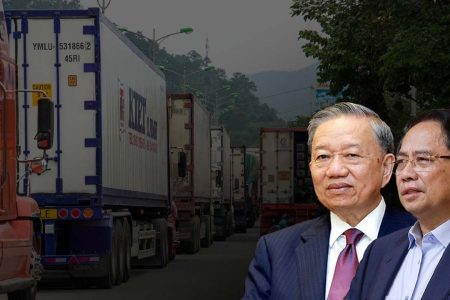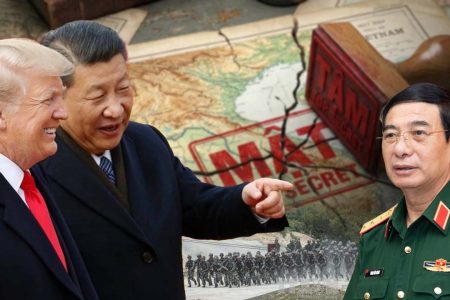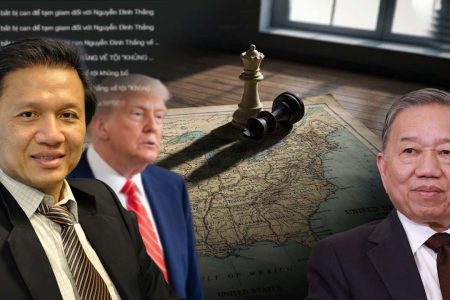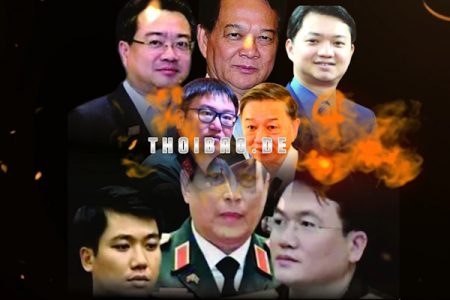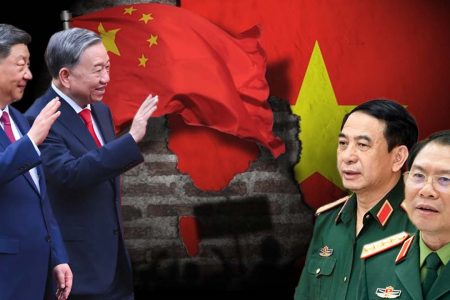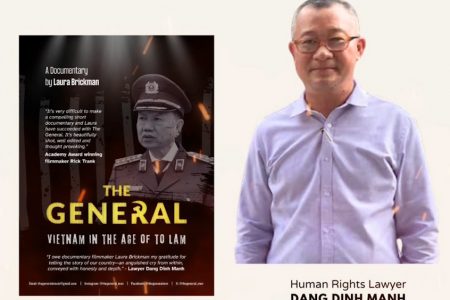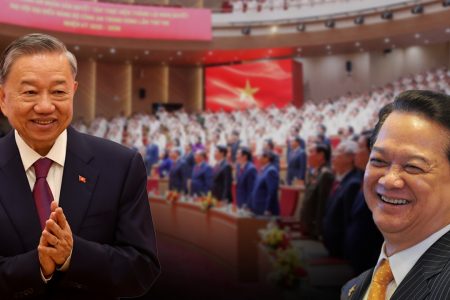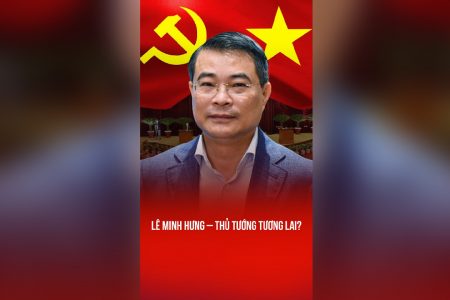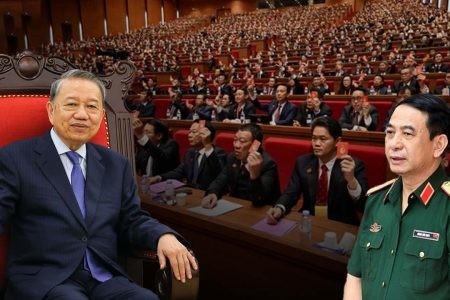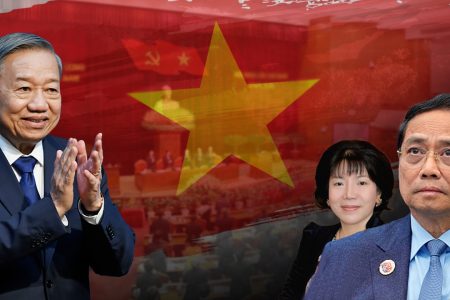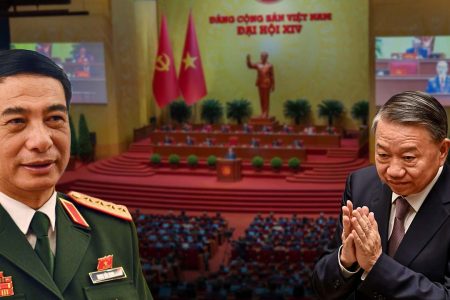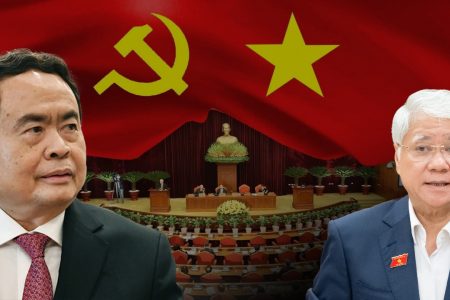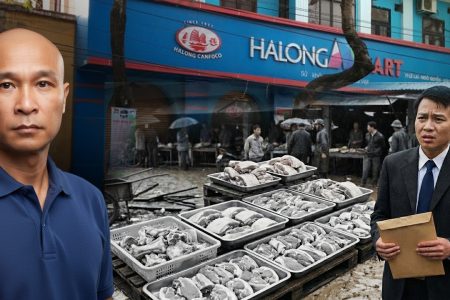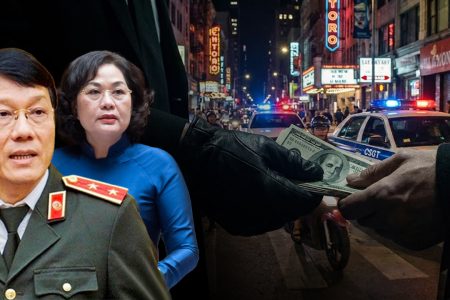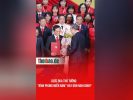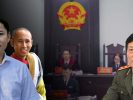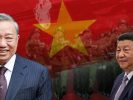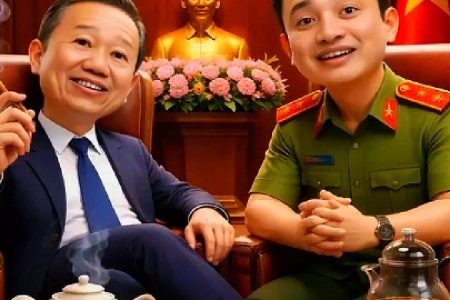In the context of the 14th National Congress of the Communist Party of Vietnam (CPV) approaching, the personnel issue has become the focus of public opinion. However, the controversial issue is not “who is being selected?” but “How they are selected?”
According to observers, the increasingly dense appearance of senior officials closed to incumbent General Secretary To Lam, especially those from Hung Yen, is raising questions about transparency and legitimacy in the party’s personnel work.

The two recent cases of secret appointments have attracted public attention and controversy, but there has been no official information in the state-controlled press that has not been officially confirmed by the Ministry of Public Security.
That is the appointment of Major General Mai Hoang as Director of Ho Chi Minh City Police Department, and at the same time, information spread on social networks that To Lam’s son – Major To Long, was appointed as Director of the Department of Foreign Security.
According to observers, in the past, similar appointment decisions were always fully announced by the state-controlled media. Therefore, the „concealment“ this time made public opinion unable to help but doubt the transparency and legality of high-level personnel decisions in the Ministry of Public Security.

It is not difficult to see that a series of important senior positions in the police force and strategic localities are currently held by figures from To Lam’s hometown of Hung Yen.
The leadership positions of the Ministry of Public Security from Hanoi, Ho Chi Minh City to Thanh Hoa, which are important and key political areas, have all fallen into the hands of police generals from Hung Yen.
When “Hung Yen people” became a phenomenon, and the rise of the so-called “Hung Yen Ministry” is causing public opinion to question: Is this the result of personal capacity, or the product of a “factionalization of power” campaign by General Secretary To Lam?
According to analysts, the non-transparent appointment of personnel not only loses public trust, but also leads to the risk of division, and sows doubt within the party itself.
When powerful and prestigious police generals such as Dinh Van Noi or Nguyen Sy Quang were forgotten those police officers closed to the General Secretary were promoted quickly in a suspicious manner.
The concentration of power in the “local governance” style of General Secretary To Lam not only goes against the party’s collective leadership principle. It is also a smoldering fire, leading to serious rifts if the “outsiders” decide to react.

Public opinion sees that the party chief does not necessarily have to be absolutely loved by the public, but the party leader must ensure legitimacy and respect.
However, in reality, when the „key“ personnel work is carried out by the General Secretary in a quiet and non-transparent manner, this is a manifestation of General Secretary To Lam’s ethics and political qualities being below normal and difficult to accept.
In politics, there is nothing more dangerous than the head of the ruling party – General Secretary To Lam, losing faith in fairness and real capacity.
Dissatisfaction accumulates not only from the people but also from the leadership – those who feel they are being left out because they are not in To Lam’s „close circle.“
In the context that the Communist Party of Vietnam is urgently preparing for its 14th National Congress, General Secretary To Lam needs to quickly change his attitude in personnel work. It is necessary to make it transparent, public and put the criteria of competence above all personal or fellow countrymen relationships.
Because if not, what the party will lose is not only a few talented police generals, but also the trust of the people and the internal political solidarity that is the only foundation that helps the party maintain long-term power.
Tra My – Thoibao.de



